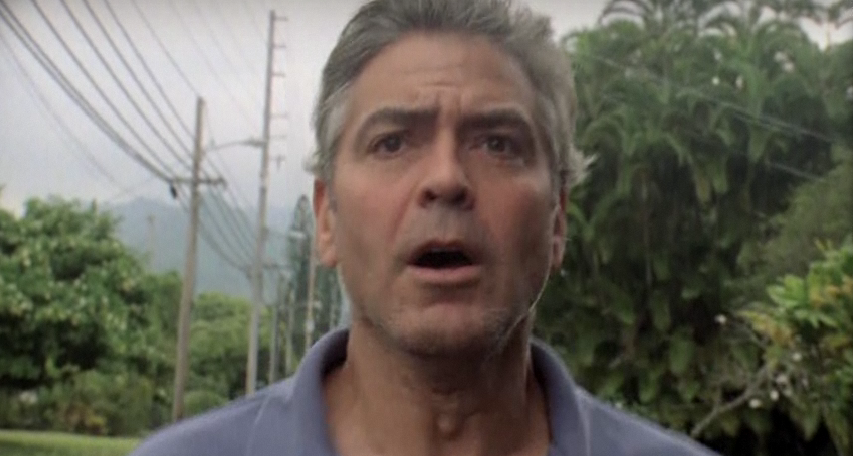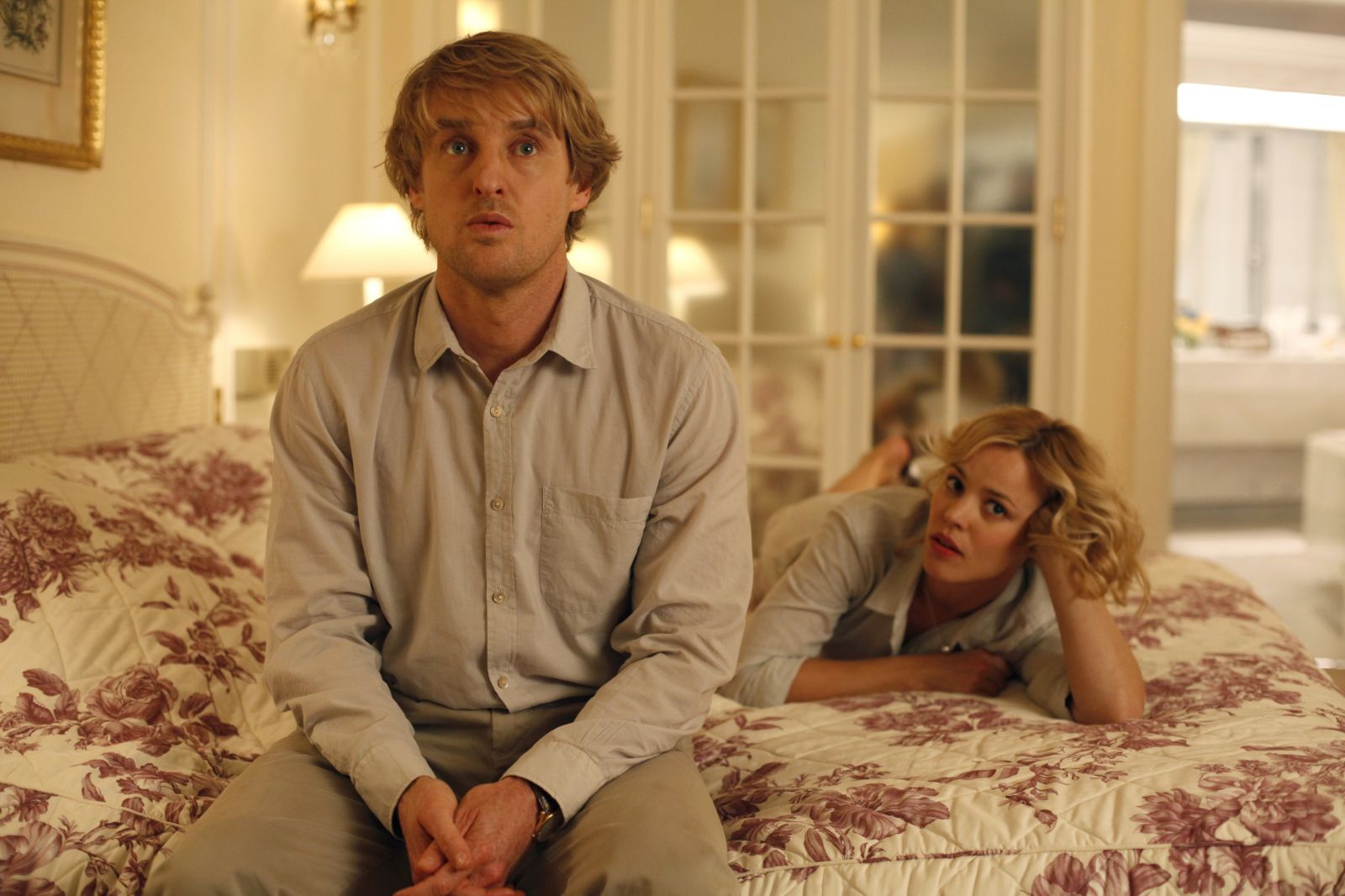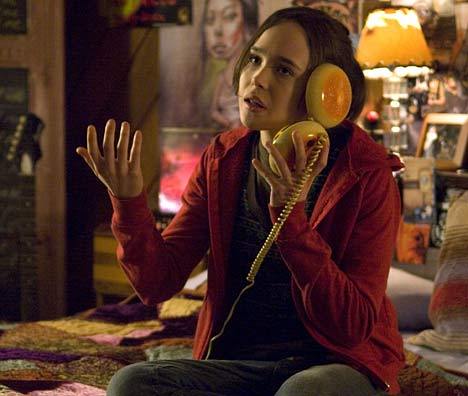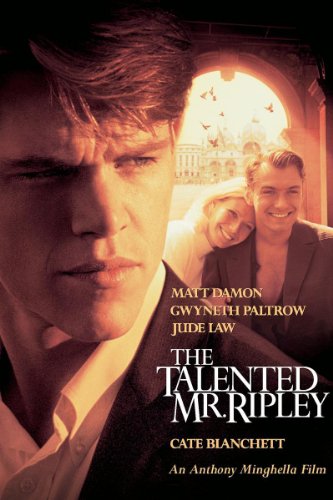The Descendants (2011) Review

When you look at the films of 2011, especially those who were competing for Oscars there is nothing quite like The Descendants. The Descendants is a simple film, very straightforward in plot and execution, and it contradicts the general theme of this year's films. However, simplicity is not a bad thing in a movie like this, because the earnestness and sincerity of this film is one of the many things that makes it excellent. That, alongside great acting, writing, and visuals. I couldn't see this film winning Best Picture, but there were awards it got that it definitely deserved to win and in this review, I will tell you why.
The Descendants is about Matt King (George Clooney), a real estate lawyer who lives and works in Hawaii. At the beginning of the film, his wife gets in a boating accident and ends up in a coma. It turns out their marriage was not in the best shape, as Matt was working all the time, whether at his law practice or dealing with the fact that he is the trustee to a large tract of land split between him and his many cousins (who are all descendants of Hawaiian royalty, hence the film's title). The issue with the land is that Matt has decided to sell the land to a developer, giving him and his cousins all the money that the trust was worth (the money which he didn't want to use) that would expire in seven years.
 |
| See. This guy and the charmers that Clooney normally plays are completely different people. Which is why this may be his best performance |
The first act of the film is just Matt trying to keep his head above water and trying to take care of his mischevious younger daughter Scottie (Amara Miller), who he learns has been acting out since the accident. Upon receiving news that his wife's coma is permanent and as per her living will, they will be taking her off life support in a few days time, Matt goes to get his eldest daughter Alex (Shailene Woodley) from her boarding school to help with Scottie and help him tell all of his wife's friends and family the news, which they do fairly early on in the film, before the main plot kicks off.
To say that Alex is messed up is a bit of an understatement.
We learn that she is in the boarding school due to her drinking and drug problems, and she seems to have a penchant for older guys and fighting with her parents, much to the disapproval of her father. It's pretty safe to say that all the women in Matt's life are pretty screwed up, and it is those characters that make the film so interesting, especially Alex, who is just as interesting a character as her father, if not more so, thanks to Shailene Woodley's fantastic performance (which we'll talk about later). It is also through Alex that the main plot for the rest of the film is set up.
the_descendants_1-4e98bf1b6b290.jpg) |
| Their faces are because of Sid. I won't tell you why, but it is one of the film's cringe-funny moments |
In one of the film's key scenes (which comes after another of the film's key scenes), Alex tells her father the news that will drive the rest of the film, which is that her mother was having an affair prior to her boating accident. The rest of the film is spent tracking him down and quite frankly, that's all I want to say, because the beauty in this film is how the events unfold on eachother, like an array of carefully placed dominos. Character traits are revealed, connections are made, and it all plays out brilliantly in the film's magnificent ending, which is certainly emotionally satisfying and speaks to the acting ability of George Clooney, and which I won't spoil for obvious reasons. But what I can say is that the end to this film was one of the best endings of any film this year.
The film has three fundamental conflicts, the wife in a coma and her affair, Matt struggling to bond with his daughters, and of course, the issues with the land. Of course, there's also the issue of breaking the news to Scottie, where they had kept her oblivious yet hopeful before due to her young age and already bad behaviour. All of the issues are equally interesting and coexist very well, and though we have seen the family-bonding-in-light-of-absentee-parent storyline before, the story is brought up by the fantastic writing and acting. The characters are all interesting and finely shaded, all flawed yet very human people dealing with difficult circumstances as a family, albeit a very dysfunctional one that, by the end, is hopefully on the way to being a bit more functional.
| Don't fuck with Mr. Thorson. He will hit you. |
These characters speak to the brilliance of the screenplay of Alexander Payne, Nat Faxon, and Jim Rash. They imbue each character with some likability and some flaw, and there isn't a single flat character. Even Sid, who starts out as a total ass, ends with some likability as we get to know him better. However, a good script isn't just about good characters, it's about writing a good story and writing good dialogue, and the film does both of those things extremely well. However, I don't get why everyone says this film is funny because aside from a few scenes, it was a very serious film and I would definitely call it a drama as opposed to a dramedy. Needless to say, the film had one of the best scripts of the year and it definitely deserved to win the Oscar it just won.
However, the script is only one element of the film's greatness. It would just be a brilliant script without a movie if it weren't for the film's brilliant acting. The first performance to gain acclaim was that of George Clooney, and rightfully so, because Clooney's performance was terrific. Though Dujardin deserved the award 100%, Clooney was a worthy runner-up and he deserved the nom nonetheless. He embodied the character of Matt King fully and perfectly, portraying the quiet stoicism and emotional complexity of his character extremely well. The role works because the normal self-deprecating charm that Clooney oozes is turned off, making this performance extremely outside the type of character he normally plays. Matt King is not a charming guy, he's not supposed to be, but he's still a likable enough guy and we do sympathize with him as the film progresses. I have not seen enough of Clooney's work to deem this the best performance of his career, but I can say that this is definitely the best thing I have seen him in and this is certainly a performance for the ages in terms of Clooney's career.
 |
| You know what, don't fuck with cousin Hugh either. As Clooney says in the film, some of the most threatening people in Hawaii look like bums and stuntmen. Don't worry, that's not spoiling anything |
However, the true star of the film (in my opinion) is Shailene Woodley as Alexandra. She was absolutely phenomenal, and considering that her character's return is the catalyst for the rest of the events in the film, I'd say that the film would not have been as good if it did not have her in it. I can see why she was considered to have been snubbed for an Oscar, but I am extremely happy that Melissa McCarthy was nominated because she gave a truly awesome performance. However, if there were a sixth slot for Supporting Actress, Woodley would certainly be in it. I feel similar to her snub as I did with Andrew Garfield's the year before, except I was much more pissed about his. Needless to say, she was brilliant, one of the best performances by a young actress of the last ten years.
A few more standouts in the cast are Amara Miller as Scottie, who does a good enough job alongside Clooney and Woodley, though there were times where I found her character too annoying to bear. The same can easily be said for Nick Krause's performance as Sid, though I warmed to him eventually. Namely, after his key scene with Clooney. But the two I was most impressed and surprised with out of the supporting cast were Matthew Lillard as Brian Speer and Judy Greer as Julie (to reveal her last name would be to spoil). They didn't get much screentime, but I was thoroughly impressed by each of their spotlight scenes, especially since I only knew Judy Greer from her roles on Two and a Half Men and I only knew Matthew Lillard from Scream and the live-action Scooby-Doo films. Needless to say, they were both phenomenal in their respective scenes.
| That picture could be used in a tourism ad |
The last thing I want to talk about with this film is the cinematography. The film was filmed on location in Hawaii, and it shows, because even the most simplistic shots are absolutely gorgeous. So gorgeous that they could be used in a Hawaii tourism commercial. It's not just the landscape shots either, there is not one single shot in this film that is ugly, even during some of the film's uglier moments. The film was nominated for editing and it definitely deserves it, as the film was very well put together. The only way I can really describe how excellent the cinematography was is to say that the scenes in the movie are exactly as good-looking as the scenes in the trailer (which is rare, because trailers often lie and mislead nowadays).
All in all, The Descendants is my fourth favourite film of 2011, and it has made me want to explore Alexander Payne's work, because he is a director I have not seen much of. In fact, this is the only of Alexander Payne's films I have seen. This film is not without flaw, but it is extremely well-acted, well-written (well worth the Oscar) and well-filmed and it is an overall worthwhile viewing experience. I wouldn't call it essential viewing just yet, but it has the potential to become a classic and a bright spot in George Clooney's body of work. Plus, it will hopefully get Shailene Woodley more good roles outside of playing a pregnant teenager on television. So in short, if you haven't seen this film already, I suggest you do, as it is one of the best of the year.
9/10- Highly Recommended
 |
| An interesting poster design |
** I have decided, since I found a website full of minimalist posters, that I would put one up at the end of each of my reviews, since there's pretty much one for every movie.
*** Also, let me know if I get too long-winded in my reviews.
































